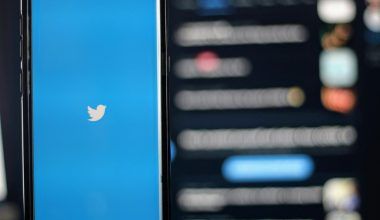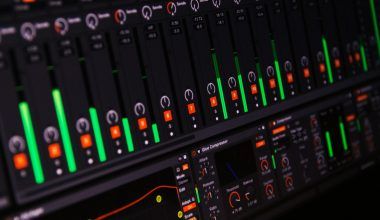In today’s crowded music industry, standing out is not just about creating amazing music. It’s also about building a personal brand that resonates with your audience. Whether you’re an emerging artist or someone who’s been around for a while, understanding music artist branding can be the game-changer that elevates your career to new heights.
What is Music Artist Branding?
At its core, music artist branding is about creating an identity that reflects who you are as an artist. It’s not just your music but also how you present yourself to the world. Think of it as the way people see, feel, and connect with you beyond the songs you create. From your style and logo to your online presence and messaging, every detail contributes to your brand.
For instance, think about iconic artists like Lady Gaga or Ed Sheeran. Lady Gaga’s bold and extravagant image perfectly complements her music, while Ed Sheeran’s humble and down-to-earth persona makes his songs even more relatable. These artists have mastered branding by aligning their identities with their music.
Why Does Music Artist Branding Matter?
In an age where thousands of songs are released daily, a strong brand makes you memorable. Branding helps you:
- Build a loyal fanbase: Fans connect deeply with artists who have a clear identity. They want to feel like they know you, not just your music.
- Create opportunities: A well-defined brand opens doors to collaborations, sponsorships, and gigs.
- Stand out in the industry: A unique brand makes you instantly recognizable in a sea of talent.
Your brand isn’t just for others; it’s also a guiding light for you. It helps you stay consistent and authentic, no matter where your career takes you.
How to Develop Your Music Artist Brand
Know Yourself and Your Music
The first step in music artist branding is understanding yourself. What makes you unique? What message do you want to share with the world? Dive deep into your personality, values, and the emotions your music evokes. If you’re unsure, ask yourself these questions:
- What inspires my music?
- How do I want listeners to feel when they hear my songs?
- What’s my story?
For example, if your music revolves around themes of love and heartbreak, your brand could emphasize vulnerability and emotional depth.
Create a Visual Identity
Your visual identity is the first thing people notice about you. It includes:
- Your logo: A simple yet impactful design that represents your brand.
- Colors and fonts: Choose colors and fonts that align with your music’s mood.
- Photography and style: Your outfits, album covers, and promotional photos should all tell a cohesive story.
Consistency is key. Use these elements across all your platforms so your audience always recognizes you.
Define Your Message
Your message is the heart of your music artist branding. It’s what you stand for and what you want people to remember. This could be a philosophy, a cause, or even a simple vibe. For example, Billie Eilish’s brand revolves around authenticity and breaking norms, making her a relatable figure for her fans.
Build an Online Presence
In today’s digital age, your online presence is a massive part of your brand. Here’s how to do it right:
- Social media: Use platforms like Instagram, TikTok, and Twitter to share behind-the-scenes moments, interact with fans, and promote your music.
- Website: Your website should be a one-stop shop for everything about you. Include your bio, tour dates, merch, and links to your music.
- Content strategy: Regularly post content that aligns with your brand. This could be acoustic covers, studio sessions, or even glimpses into your personal life.
Remember, consistency is crucial. Your tone, visuals, and message should be uniform across all channels.
Connect with Your Audience
Fans want more than just music; they want a connection. Engage with your audience by:
- Responding to comments and messages.
- Hosting live Q&A sessions.
- Sharing personal stories and experiences.
When fans feel connected to you, they’re more likely to support your career.
Collaborate Wisely
Collaborations can amplify your brand, but choose wisely. Partner with artists, producers, or brands that align with your identity. For example, a pop artist might collaborate with a fashion brand known for bold designs, while an indie artist might team up with eco-friendly companies.
Stay Authentic
Authenticity is the backbone of music artist branding. Fans can sense when something feels fake. Be true to yourself, and your brand will naturally resonate with the right audience.
Overcoming Challenges in Music Artist Branding
Branding isn’t always easy. Here are some common challenges and how to tackle them:
- Fear of judgment: It’s natural to worry about how others perceive you. Remember, not everyone will resonate with your brand, and that’s okay.
- Consistency: Staying consistent can be tough, especially when trends change. Focus on your core identity, and adapt without losing authenticity.
- Standing out: In a saturated market, finding your unique angle is crucial. Embrace what makes you different.
Measuring the Success of Your Brand
A successful brand isn’t built overnight, but there are ways to gauge progress:
- Fan engagement: Are your fans interacting with your posts, buying your merch, and attending your shows?
- Opportunities: Are you getting more gig offers, collaborations, or sponsorships?
- Recognition: Are people starting to associate certain visuals or messages with you?
Keep refining your brand based on feedback and results.
Final Thoughts on Music Artist Branding
Music artist branding is not just a marketing strategy; it’s a reflection of who you are. It’s about creating an identity that feels true to you while connecting with your audience. By investing time and effort into building your brand, you’re not just standing out—you’re creating a legacy.
So, start today. Discover your unique voice, craft your visual identity, and connect with your fans on a deeper level. Remember, your brand is your story—and the world is ready to hear it.
For further reading, explore these related articles:
- The Incredible Journey of Justin Bieber: A Simple Biography of a Pop Star
- Marshmello Silence Lyrics: A Heartfelt Dive Into Its Emotions
For additional resources on music marketing and distribution, visit DMT Records Pvt. Ltd..






